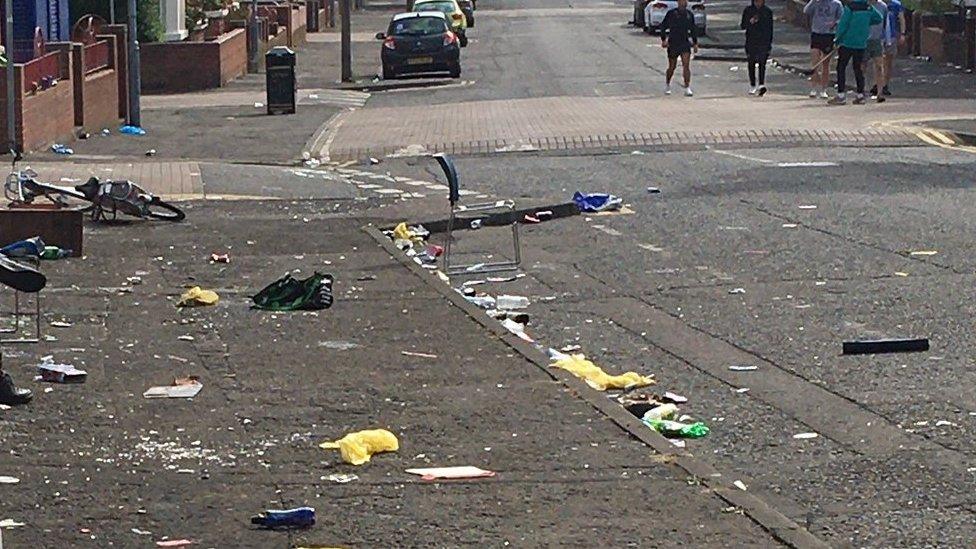Coronavirus: NI students could be disciplined over Covid restriction breaches
- Published
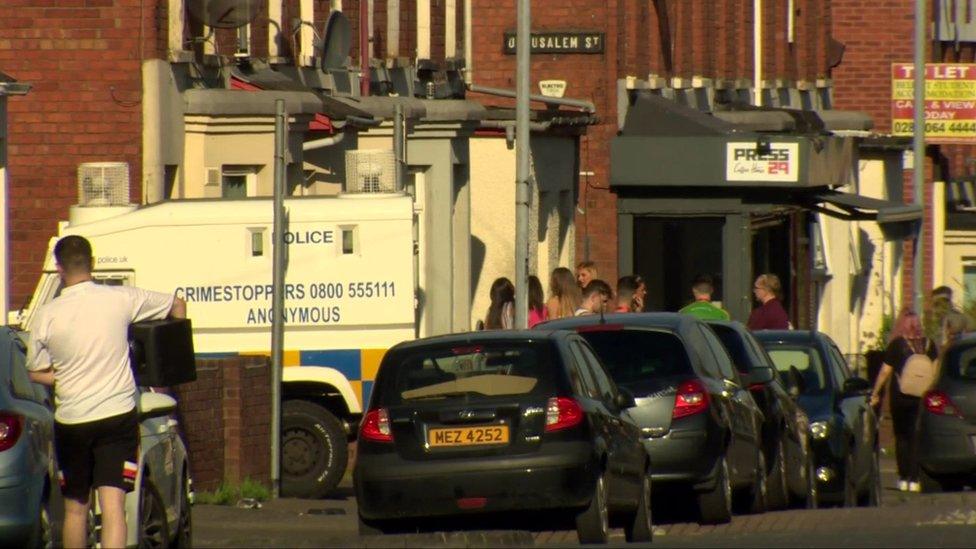
Students returning to Belfast's Holyland area ahead of the start of term with Tuesday seeing an uptick of complaints over house parties
Northern Ireland's universities have warned they will take disciplinary action against students who breach Covid-19 public health guidelines.
It follows complaints over house parties in Belfast's Holyland area.
Ulster University warned students could face suspension or expulsion, while Queen's University said it would "apply disciplinary measures as appropriate".
Later, the group set up to look at compliance and enforcement of the regulations met for the first time.
BBC News NI understands the body focused on the issues in the Holyland area.
Those who took part included the executive's junior ministers, the health minister, the chief medical officer, the PSNI and representatives from the two universities.
The group is expected to meet again on Friday.
On Wednesday, the Department of Health confirmed two more deaths and 129 new Covid-19 cases in its latest figures.
The department's death toll, which counts people who have died within 28 days of testing positive for Covid-19, now stands at 573.
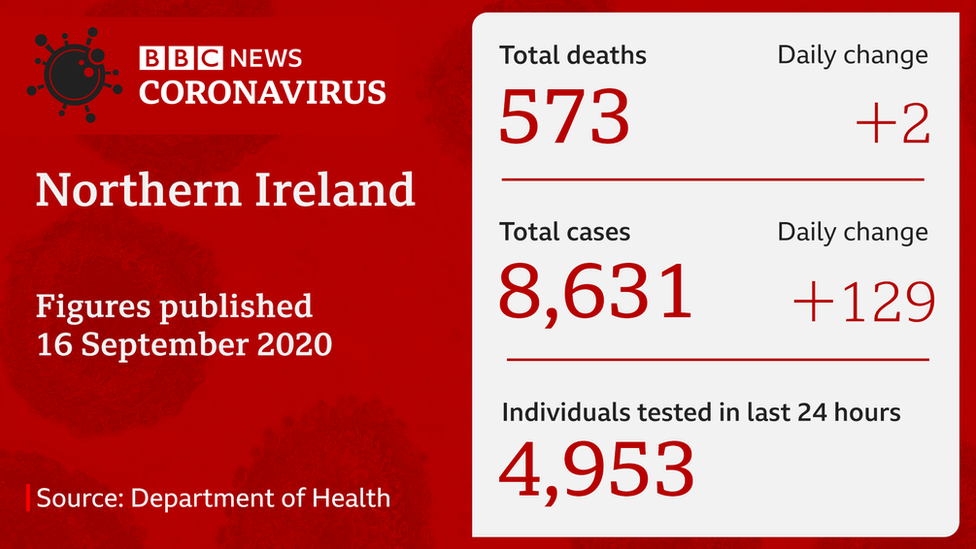
Political parties have called for greater intervention in the Holyland to prevent student house parties and the spread of infection.
Police made two arrests in the Holyland area on Tuesday and warned that PSNI officers will take action "where we see breaches of the regulations or anti-social or criminal behaviour".
Health Minister Robin Swann said that "swift action" must be taken.
"I do not think for one minute that they are representative of all students or of young people.
"The situation does however demand urgent and coordinated action by the authorities, that includes the police, the city councils and the universities."
He added: "The message must go out that dangerous anti-social behaviour will not be tolerated."
Representatives from both Ulster University (UU) and Queen's University Belfast (QUB) told the BBC's Good Morning Ulster programme only a minority of students were involved in anti-social behaviour.
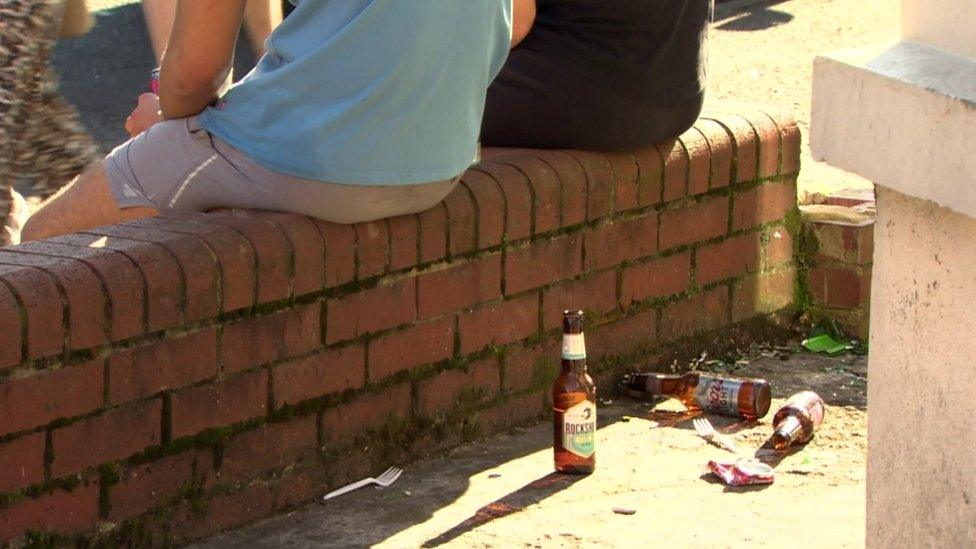
With students returning to the Holyland area this week, universities have warned that they will act against those behaving anti-socially
The universities said they were working with the police, Belfast City Council and other agencies to tackle the issue, including Covid-19 breaches.
"We've written to every single student, they'll have also had very direct engagement about that during their induction week this week," said Prof Paul Seawright, an executive dean at UU.
He added that it "spells out very, very clearly that any anti-social behaviour, which includes breaches of the guidelines, will be subject to the university's disciplinary process and that could lead to suspension or expulsion from their degrees".
'Draconian processes won't help'
Queen's Pro-vice chancellor, Prof Stuart Elborn said QUB had "very clear guidelines for off-campus behaviour".
"Where there are complaints and we pick those up and verify them, we will absolutely deal with students who are behaving in an anti-social way in terms of general behaviour, but particularly in terms of their adherence to public health guidelines for Covid-19."
However Prof Elborn added: "This is a minority of students and we need to work together to really encourage the right behaviours.
'If you're a student in the Holylands right now and can afford £960 for a house party'
"Coming down with draconian processes isn't really going to help change things. We need to be persuading and educating and encouraging everybody to work together around this."
He said QUB was working with existing students and those who will start their courses next week to advise them that everyone has a responsibility to protect their community during the pandemic.
'It's not our accommodation'
Prof Seawright said the issues in the Holyland were a "very small and localised problem".
He said UU representatives were in the area on Tuesday night, monitoring student behaviour and helping to ensure they obeyed Covid restrictions.
"Our presence there has helped students comply with requests to disperse, turn music down and we've been advising them house by house on safety issues around their accommodation.
"It's not our accommodation, it's not owned by us so that's more difficult for us to control but we're there trying to do that and so are other agencies."
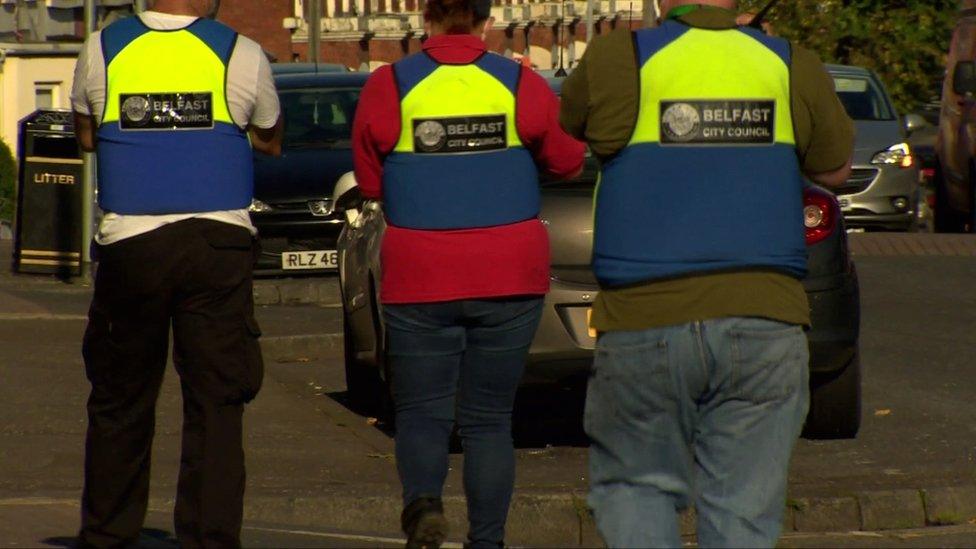
Belfast City Council is among agencies carrying out patrols in the Holyland area
Some students have complained that young people are being unfairly targeted by the authorities.
'It's always the young people to blame'
Kai McHugh, a second year student at QUB, said it was wrong to blame all students for the actions of some.
"The size of Queens, you will always get people like that [who break Covid-19 restrictions]. It's a shame," he told BBC Radio Foyle.
"It's quite unfair. It's a societal thing, if something goes wrong it's always the young people to blame.
"I feel there's a lack of communication. Some of these guidelines just aren't clear enough."
Mr McHugh said one of his flatmates was unaware of the new rules introduced on Monday.
"It will take everyone working together to get over these issues. The onus isn't just on one group alone, it is a combined effort, it'll take everyone to pull through."
'Anti-social behaviour crisis'
Green party MLA Clare Bailey, whose constituency office is in the area, called on the executive, including the justice minister and the health minister, to visit the area.
She said residents had endured a "perpetual anti-social behaviour crisis".
Ulster Unionist councillor Sonia Copeland called for Justice Minister Naomi Long to coordinate a multi-agency approach for dealing with the area.
"It's no longer good enough to make excuses for those people engaged in these irresponsible activities. It's time to send a clear message that enough is enough," she said.
- Published15 September 2020
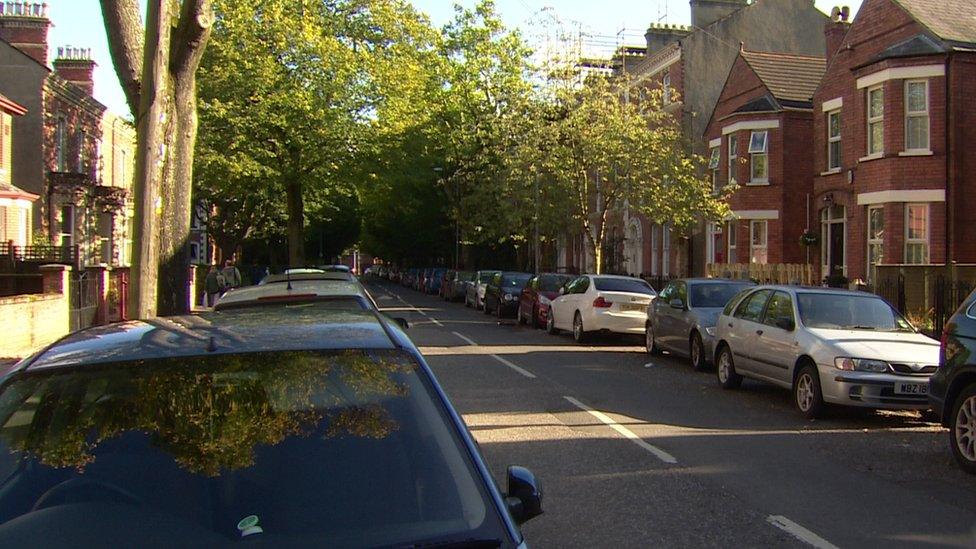
- Published14 September 2020

- Published29 July 2021
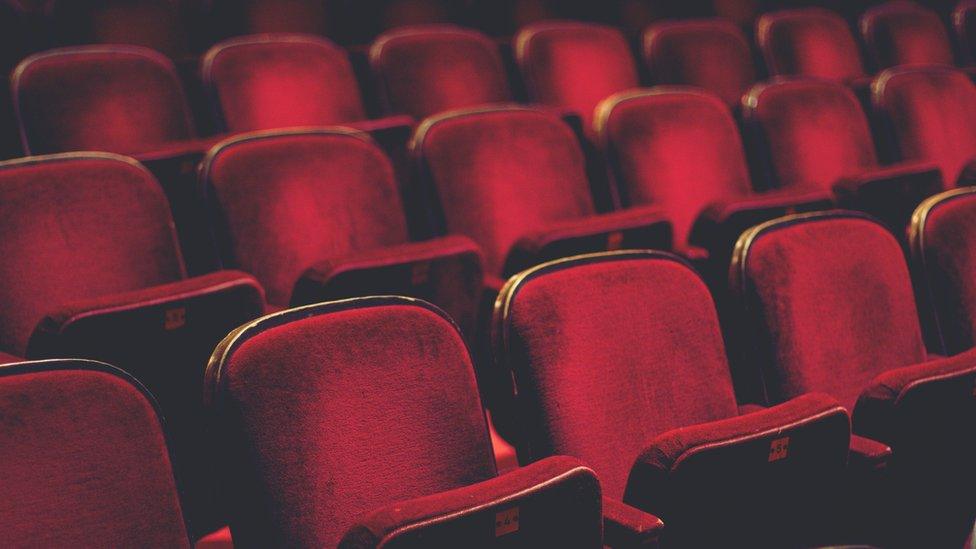
- Published10 September 2020
